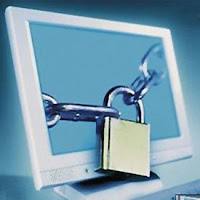
According to "My E-Commerce" Blog, the post of favourite password used online research done by Information Week on an analysis of 28,000 passwords from a popular website:
- 16% uses name (yes, your own name, spouse or children)
- 14% likes "1234" or "12345678" (easy and nice)
- 4% uses "password" or "password1" (password = password)
Some other common passwords includes:
- qwerty (English keyboard letters below the numeric keys)
- hannah, pokemon, matrix, ironman (popular tv show stars)
- iloveyou, ihateyou
 In our opinion, a password is like a key to our home. If someone steals it, there are chances he/she will use it to steal something else. We use passwords everywhere in our life, but the life of an Internet user is absolutely impossible without passwords: e-mail, online discussion groups, e-bank, commercial websites - all of them use password-based authentication.
In our opinion, a password is like a key to our home. If someone steals it, there are chances he/she will use it to steal something else. We use passwords everywhere in our life, but the life of an Internet user is absolutely impossible without passwords: e-mail, online discussion groups, e-bank, commercial websites - all of them use password-based authentication.Create a Strong PASSWORD !
Do's:
- Combine letters, symbols, and numbers that are easy for you to remember and hard for someone else to guess.
- Create pronounceable passwords (even if they are not words) that are easier to remember, reducing the temptation to write down your password.
- Try out using the initial letters of a phrase you love, especially if a number or special character is included.
- Take two familiar things, and then wrap them around a number or special character. Alternatively, change the spelling to include a special character. In this manner, you get one unfamiliar thing (which makes a good password because it is easy for you and you alone to remember, but hard for anyone else to discover).
Examples:
"Phone + 4 + you" = "Phone4you" or "Fone4y0u"
"cat + * + Mouse" = "cat*Mouse" or "cat*Mou$e"
Don'ts:
- Don't use personal information such as derivatives of your user ID, names of family members, maiden names, cars, license tags, telephone numbers, pets, birthdays, social security numbers, addresses, or hobbies.
- Don't use any word in any language spelled forward or backward.
- Don't tie passwords to the month, for example, don't use "Mayday" in May.
- Don't create new passwords that are substantially similar to ones you've previously used.


The most important is do not ever share the personal information on the unknown email.
ReplyDelete